[ANSWERED] What is First-Party Cyber Coverage?
In a world where data exists everywhere, you can’t afford not to protect your company. But what is first-party cyber coverage?

Business owners who don't have cyber risk insurance usually say that the price of such insurance is the main deterrent.
The cost of cybercrime globally was $8.44 trillion in 2022. By 2026, experts estimate that cybercrime costs worldwide will exceed $20 trillion, an increase of almost 150% compared to 2022.
Clearly, companies can’t afford not having cyber coverage. All forms of cyber coverage cover a form of risk that, no matter how improbable you may think it is, happens every day across the U.S.
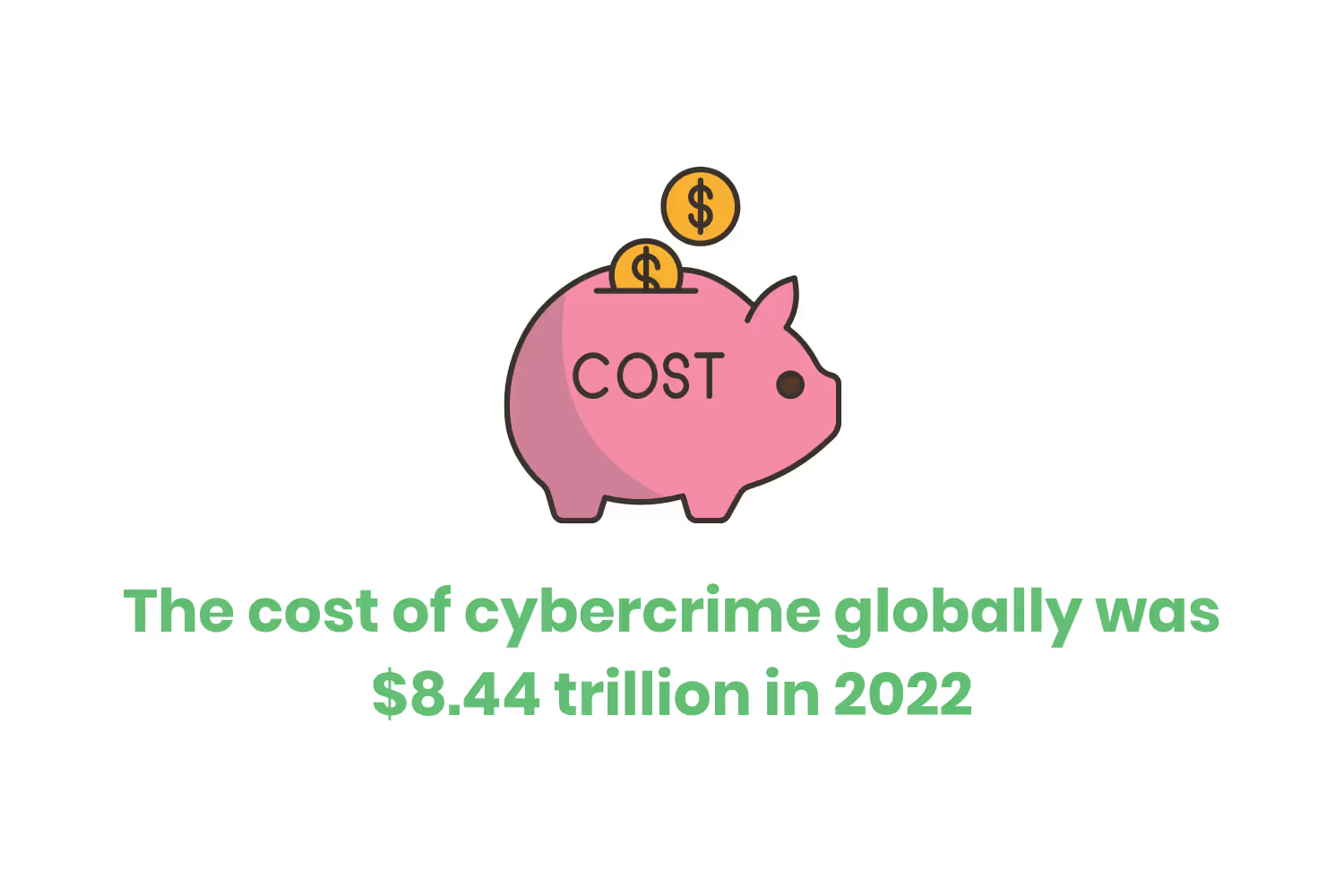
Whether hackers hold your data for ransom, someone steals your company’s financial information, or all the computers at the company blow away in a hurricane, cyber risks are everywhere.
In a world where data exists everywhere, you can’t afford not to protect your company.
But what is first-party cyber coverage?
Table of Contents
- What is first-party cyber coverage?
- Who should carry first-party cyber insurance?
- What’s the difference between first-party vs. third-party cyber insurance?
- What are some common claim scenarios for first-party cyber liability insurance?
- Conclusion
What is first-party cyber coverage?
First-party cyber coverage provides financial assistance to mitigate the impact of data breaches and cyber attacks for small businesses.
It covers the cost of things like…
- Communicating with affected customers
- Providing credit monitoring
- Executing PR and reputation management campaigns
- Other recovery activities
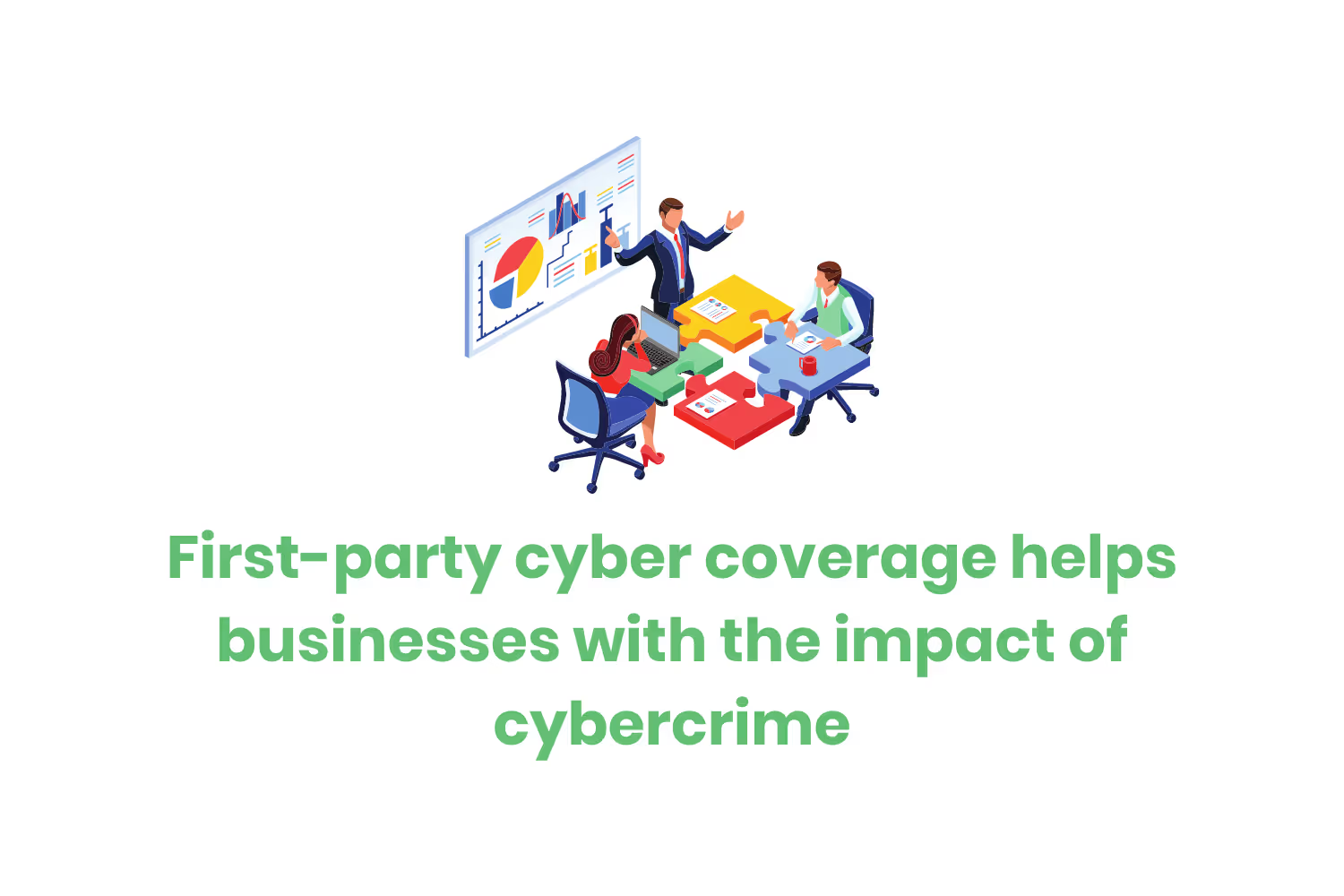
As you can see, these are all expenses incurred following a cyber incident on a business’s network systems. First-party cyber insurance is often bundled with errors and omissions insurance.
This policy is crucial for businesses, especially those that store sensitive client or customer information online. Such information can include credit card numbers or Social Security numbers.
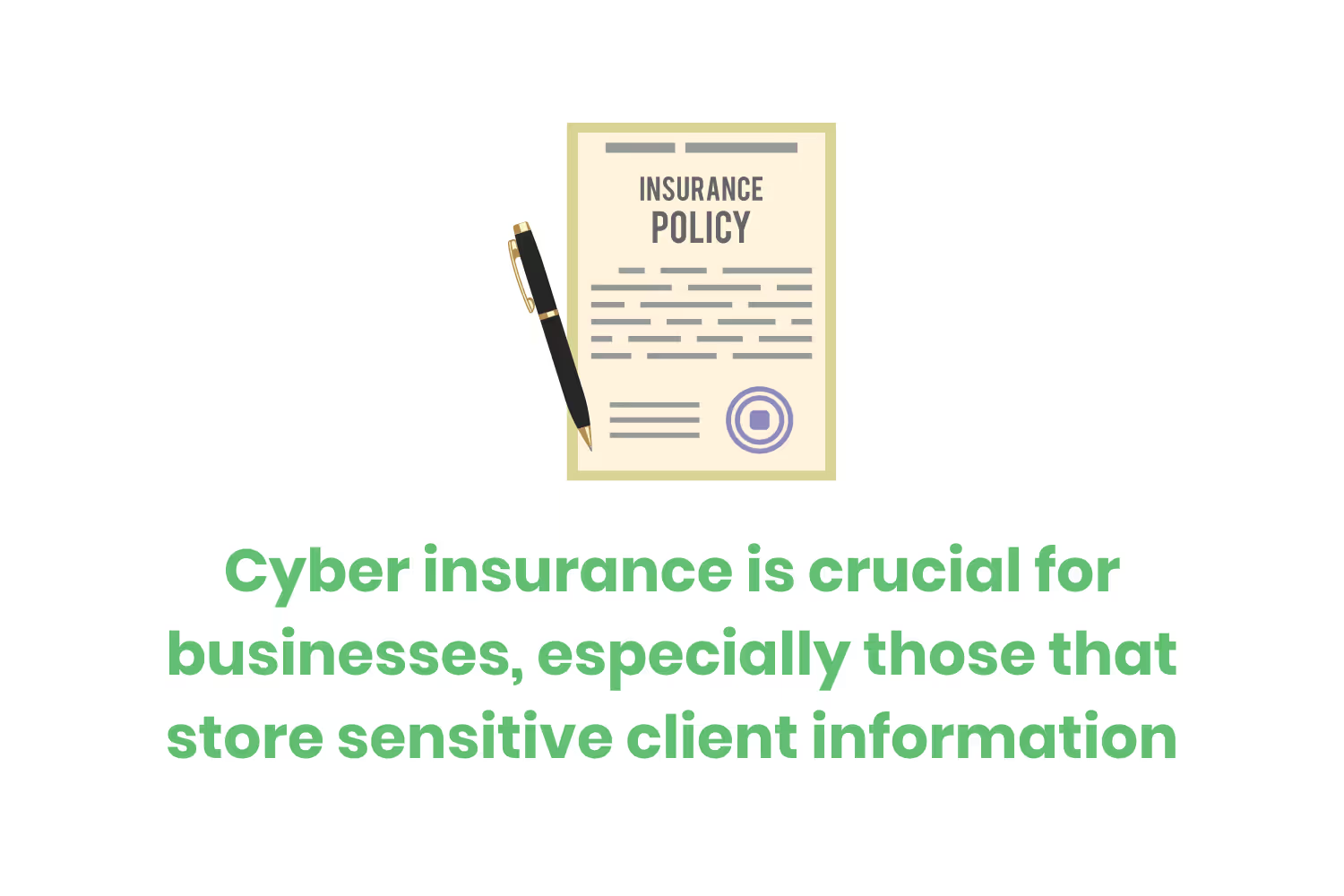
In a hypothetical situation, if an employee writes down a password and leaves it in plain sight, your business could become the victim of a data breach. First-party cyber insurance could help pay for expenses related to the fallout of the incident.
Who should carry first-party cyber insurance?
Cybercrime continues to rise each year. As such, more and more companies face an increased risk of a data breach or cyber attack.
To mitigate potential financial losses resulting from such an attack, businesses need to have adequate insurance coverage.
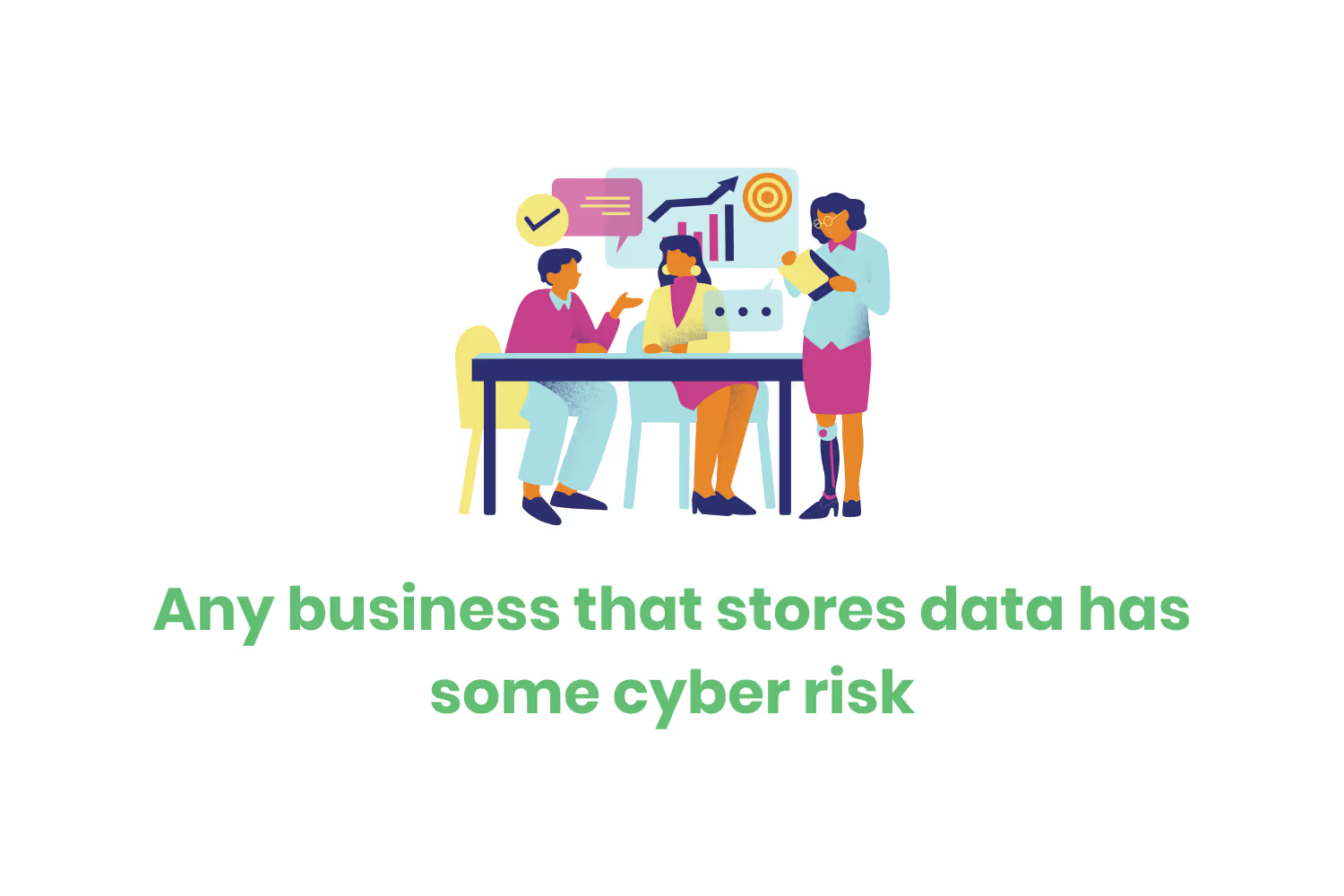
Any business that stores data has some cyber risk. Especially those who store passwords and credit card numbers. Such businesses are particularly vulnerable to an attack and should have first-party cyber coverage.
What's the difference between first-party vs. third-party cyber insurance?
The key difference between first-party and third-party cyber insurance coverage has to do with who suffers the loss vs who’s the one to experience a breach.
First-party coverage is specifically for the company that bought the insurance. It's specifically designed to lessen the financial impact of a breach incurred by the insured party. In essence, it covers data breaches and cyber attacks on your own business.
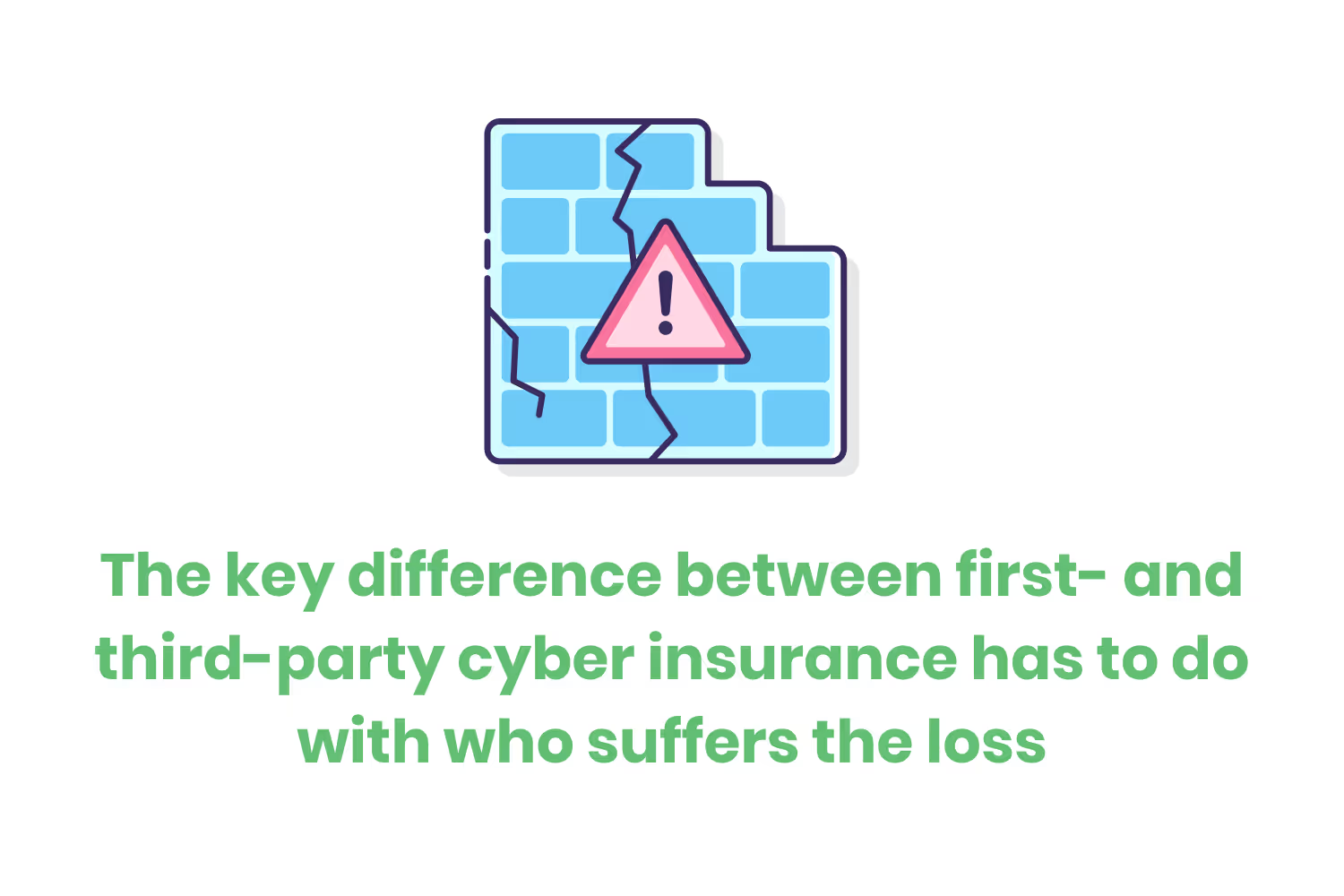
Third-party cyber liability insurance provides protection in case the insured company makes a mistake that results in a client suffering a data breach or cyber attack.
Another way to describe the difference is…
- First-party coverage covers a company’s damages from covered cyber losses.
- Third-party coverage covers legal expenses that result from a firm's blame for causing another firm’s cyber losses.
What are some common claim scenarios for first-party liability insurance?
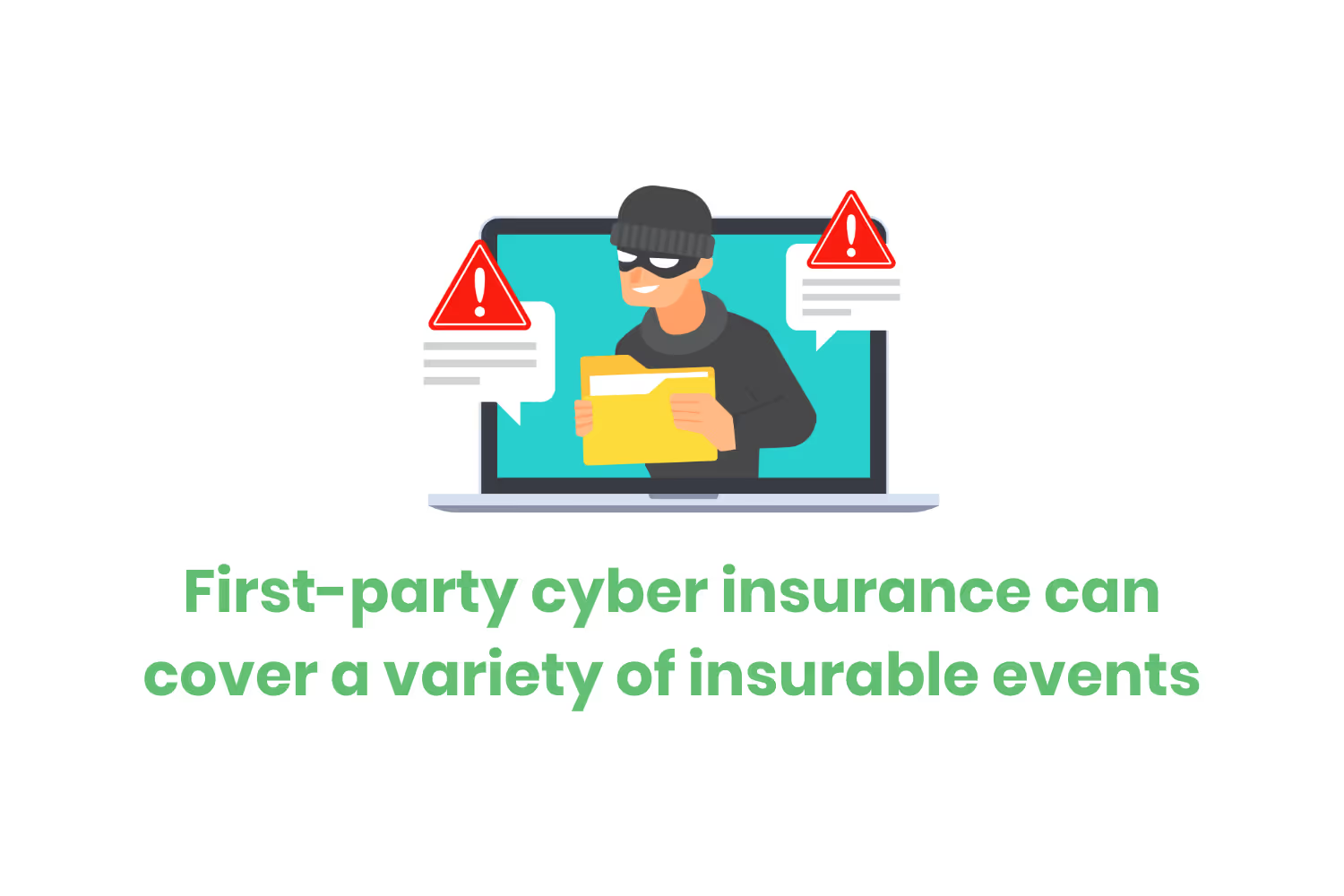
First-party cyber insurance can cover a variety of insurable events.
These include…
- Someone maliciously destroying company data
- A hacker launches a denial of Services (DDoS) attack against the company
- Someone planting a virus, malware, or spyware on a company computer hard drive
- An employee accidentally destroys a database
- A power surge wipes out a business server
- A company computer hardware gets damaged in a storm
- Someone holds a company computer data for ransom
Conclusion
Cyber risk is more prominent than ever…which is also making insuring cyber risk more complex.
Whether it’s ransomware, phishing emails with malware embedded, or social engineering attacks, many companies find themselves the target of a cyber attack. For many leaders at these companies, a cyber insurance policy holds a lot of value.
You would never open a business without the proper amount of commercial property insurance. So why wouldn’t you have cyber insurance and leave your data at risk?
Whether you run a home-based business or a large corporation, data is more than a number on a screen. It is everything. Make sure you protect your business with the right level of first-party cyber insurance.
Emphasize your product's unique features or benefits to differentiate it from competitors
In nec dictum adipiscing pharetra enim etiam scelerisque dolor purus ipsum egestas cursus vulputate arcu egestas ut eu sed mollis consectetur mattis pharetra curabitur et maecenas in mattis fames consectetur ipsum quis risus mauris aliquam ornare nisl purus at ipsum nulla accumsan consectetur vestibulum suspendisse aliquam condimentum scelerisque lacinia pellentesque vestibulum condimentum turpis ligula pharetra dictum sapien facilisis sapien at sagittis et cursus congue.
- Pharetra curabitur et maecenas in mattis fames consectetur ipsum quis risus.
- Justo urna nisi auctor consequat consectetur dolor lectus blandit.
- Eget egestas volutpat lacinia vestibulum vitae mattis hendrerit.
- Ornare elit odio tellus orci bibendum dictum id sem congue enim amet diam.
Incorporate statistics or specific numbers to highlight the effectiveness or popularity of your offering
Convallis pellentesque ullamcorper sapien sed tristique fermentum proin amet quam tincidunt feugiat vitae neque quisque odio ut pellentesque ac mauris eget lectus. Pretium arcu turpis lacus sapien sit at eu sapien duis magna nunc nibh nam non ut nibh ultrices ultrices elementum egestas enim nisl sed cursus pellentesque sit dignissim enim euismod sit et convallis sed pelis viverra quam at nisl sit pharetra enim nisl nec vestibulum posuere in volutpat sed blandit neque risus.

Use time-sensitive language to encourage immediate action, such as "Limited Time Offer
Feugiat vitae neque quisque odio ut pellentesque ac mauris eget lectus. Pretium arcu turpis lacus sapien sit at eu sapien duis magna nunc nibh nam non ut nibh ultrices ultrices elementum egestas enim nisl sed cursus pellentesque sit dignissim enim euismod sit et convallis sed pelis viverra quam at nisl sit pharetra enim nisl nec vestibulum posuere in volutpat sed blandit neque risus.
- Pharetra curabitur et maecenas in mattis fames consectetur ipsum quis risus.
- Justo urna nisi auctor consequat consectetur dolor lectus blandit.
- Eget egestas volutpat lacinia vestibulum vitae mattis hendrerit.
- Ornare elit odio tellus orci bibendum dictum id sem congue enim amet diam.
Address customer pain points directly by showing how your product solves their problems
Feugiat vitae neque quisque odio ut pellentesque ac mauris eget lectus. Pretium arcu turpis lacus sapien sit at eu sapien duis magna nunc nibh nam non ut nibh ultrices ultrices elementum egestas enim nisl sed cursus pellentesque sit dignissim enim euismod sit et convallis sed pelis viverra quam at nisl sit pharetra enim nisl nec vestibulum posuere in volutpat sed blandit neque risus.
Vel etiam vel amet aenean eget in habitasse nunc duis tellus sem turpis risus aliquam ac volutpat tellus eu faucibus ullamcorper.
Tailor titles to your ideal customer segment using phrases like "Designed for Busy Professionals
Sed pretium id nibh id sit felis vitae volutpat volutpat adipiscing at sodales neque lectus mi phasellus commodo at elit suspendisse ornare faucibus lectus purus viverra in nec aliquet commodo et sed sed nisi tempor mi pellentesque arcu viverra pretium duis enim vulputate dignissim etiam ultrices vitae neque urna proin nibh diam turpis augue lacus.



![[ANSWERED] What to do if your email is on the dark web?](https://cdn.prod.website-files.com/67e2b8210878abcba6f91ae6/68adc0209238d61bc357cb8d_EmailonTheDarkWeb_1224.avif)
![[ANSWERED] What is Dark Web Monitoring?](https://cdn.prod.website-files.com/67e2b8210878abcba6f91ae6/68adbe4fe3e9533f2c658048_WhatisDarkWebMonitoring_1224.avif)